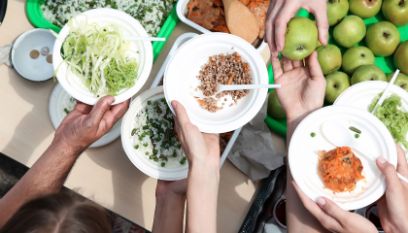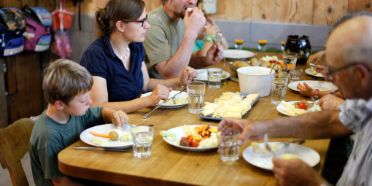Expertise
Our team develops solutions for social challenges in the area of nutrition and offers concrete tools and interventions on the path to social sustainability.
Our range of services includes, for example
- participatory and transdisciplinary research into cultural, social and economic factors of our nutrition and the development of recommendations for action and concrete actions (participatory action research).
- the organisation, implementation and moderation of workshops and creative formats with stakeholders from politics, business, research and civil society to find a common vision (social innovation labs, living labs).
- researching questions relating to the sociology of nutrition (including qualitative interviews, group discussions, observations and discourse analysis).
Our team has an extensive national and international network consisting of actors from politics, business, research and civil society. Using participatory approaches, we endeavour to jointly shape a more socially just, liveable and environmentally friendly future.




